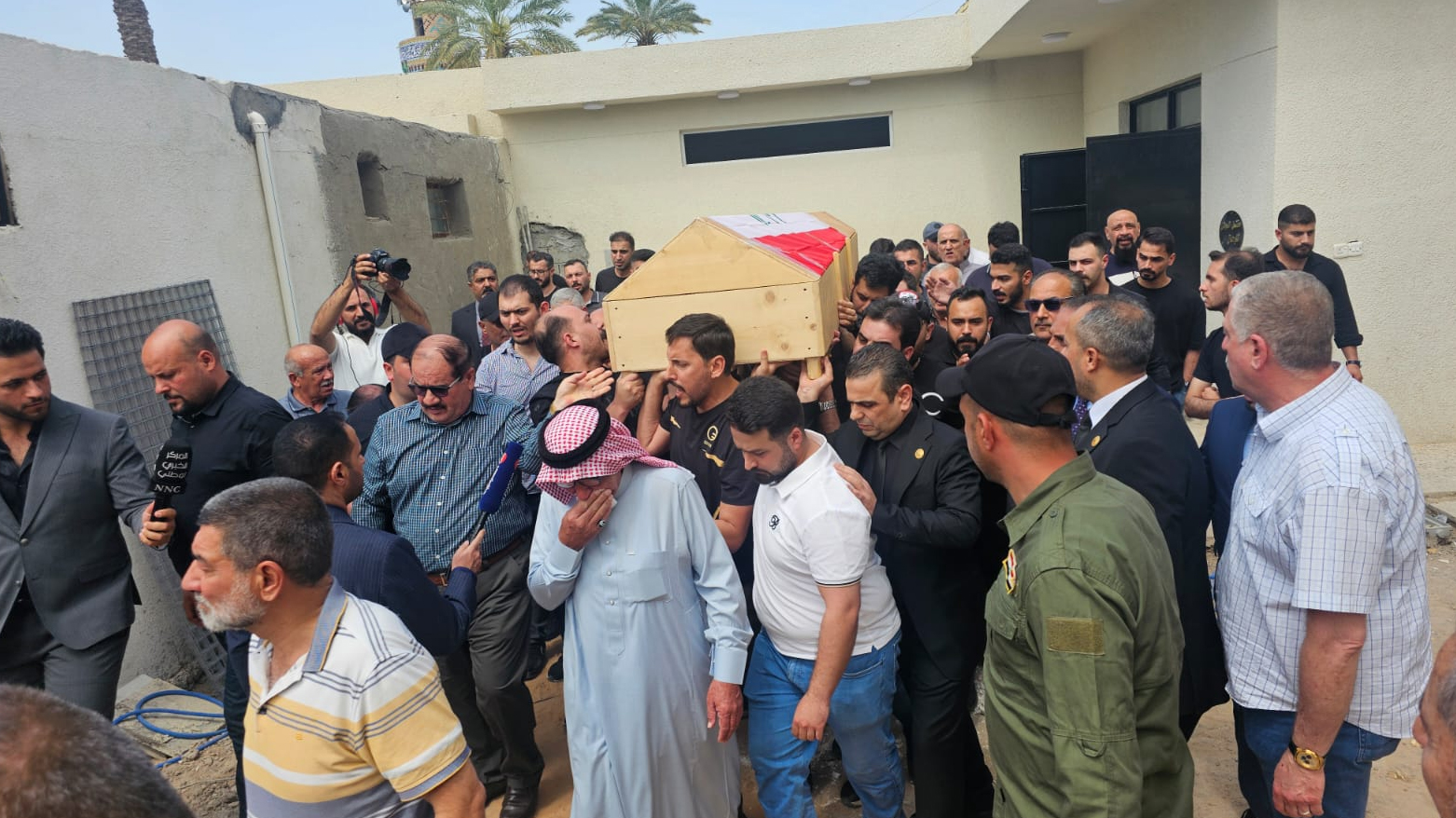Beaten, Comatose, Dead: Engineer’s Case Sparks Investigation
Husein Arab, a Sunni Member of the Iraqi Parliament, told Kurdistan24 on Monday, that Bashir Khalid "died under torture at the hands of prison officials."

By Kamaran Aziz
ERBIL (Kurdistan24) — The death of Engineer Bashir Khalid while in custody has ignited public outrage and sharpened scrutiny over Iraq’s detention system, as allegations of torture, abuse of power, and cover-ups have emerged from various official and independent sources.
Husein Arab, a Sunni Member of the Iraqi Parliament, told Kurdistan24 on Monday, that Bashir Khalid "died under torture at the hands of prison officials." Arab’s declaration came in the wake of mounting reports and testimonies that paint a harrowing picture of Khalid’s final days.
According to a security source cited by Baghdad Today, Khalid had fallen into a coma after a violent altercation allegedly triggered by a quarrel with a senior officer in the Federal Police. He was detained at the Hutayn Police Station and later transferred to Al-Yarmouk Hospital in critical condition. He succumbed to his injuries on Monday, April 7.
The Ministry of Interior initially pushed back against claims of torture, stating in a press release that Khalid had been injured in a scuffle with other detainees. A video released by the ministry reportedly showed the moment of this altercation, denying any direct involvement of police personnel in the incident. Still, the ministry confirmed that an urgent investigation was underway.
However, the evolving details of the case have prompted both public skepticism and institutional reaction. The Speaker of Parliament, Mahmoud Al-Mashhadani, ordered a parliamentary investigative committee headed by MP Arshad Al-Salihi to look into the matter. The committee is expected to present its findings within a week.
In their appeal, Khalid's family described the circumstances leading to his death as a case of "brutal torture" following his arrest after a dispute with the Director of Salaries at the Federal Police. According to the family, Khalid was taken into custody from the Hayy al-Hutayn neighborhood in Baghdad and transported to the Hutayn Police Station, where he endured severe physical abuse that caused internal bleeding and eventually led to his coma.
According to INA (Iraqi News Agency), Deputy Minister for Police Affairs Hadi Rzayej provided a detailed account during a press conference, stating that Khalid had tried to enter the Al-Ayadi Complex multiple times on the night of March 27 to 28 under the pretense of being invited for suhoor (the meal eaten during early mornings during Ramadan month). The complex, home to senior security officers, denied his entry. Khalid then climbed over the fence and allegedly attempted to reach Major General Abbas’s apartment. A confrontation ensued between the general, his sons, and Khalid.
The altercation led to Khalid being arrested and charged with forced entry under Article 428 of the Penal Code. Rzayej emphasized that Khalid was behaving erratically and in a hysterical state while in custody, and was later assaulted by detainees in the Al-Jaifir Central Police Station.
The Ministry of Interior, while denying that Khalid was assaulted by police officers, confirmed that legal action had been initiated against several parties. According to the ministry's Friday statement, these include the Director of Salaries and his son for abuse of authority, as well as the investigating officer for procedural negligence. Furthermore, on-duty detention staff were referred for investigation due to their failure to control the detention environment.
Major General Waleed Khalid Ali Akbar, who led the ministerial investigative committee, stated during the press briefing that their findings did not confirm assault by police personnel but did affirm a violent altercation with Major General Abbas and his sons. The committee concluded that there was significant ambiguity about the motives behind Khalid’s actions and the relationship between him and the officer.
The Iraqi Engineers Syndicate has taken a firm stance on the matter, calling Khalid’s death not just a criminal incident but a "blatant assault on the dignity of the Iraqi citizen," according to a statement received by Alsumaria News. The Syndicate expressed strong opposition to what it described as "an abundance of official statements attempting to deflect blame" and vowed to pursue justice through legal channels.
According to the Syndicate, Khalid had been assaulted on two separate occasions—first at the Hutayn Police Station and later at the Karkh Transfer Center. The Syndicate has demanded that the investigation be transferred from the Ministry of Interior to the judiciary, emphasizing that "the dignity and rights of engineers are a red line."
The Human Rights Committee in Iraq has also joined the calls for justice. MP Nisan Al-Zayer, who visited Khalid at Al-Karkh Hospital before his death, said the incident demonstrates an alarming pattern of abuse within Iraq's interrogation centers. Al-Zayer accused security officials of collusion and called on Parliament to summon the Minister of Interior and Baghdad Karkh Police Commander for questioning.
In response to the public and political pressure, Minister of Interior Abdul Amir Al-Shammari ordered a deeper probe, while multiple officials, including Major General Abbas and his sons, have reportedly been detained pending investigation.
The case of Engineer Bashir Khalid now stands as a disturbing test of Iraq’s commitment to human rights and institutional accountability. As investigations continue, civil society, professional syndicates, and parliamentarians are demanding a transparent process to reveal the full truth behind a tragedy that has touched a national nerve.